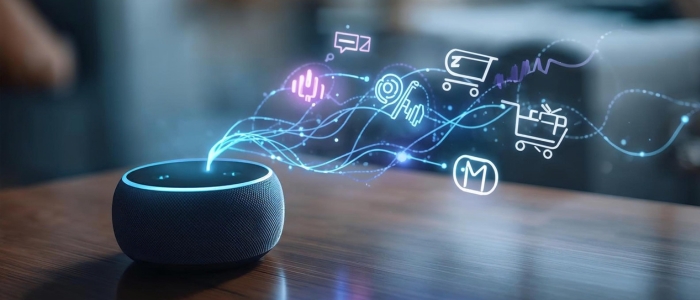
The way customers shop and interact with brands is changing faster than ever. One of the most exciting shifts is the rise of voice commerce powered by smart assistants like Alexa, Google Assistant, and Siri. As more households adopt these technologies, businesses are rethinking their sales promotion strategies to capture customers where conversations, not clicks, drive purchases.
The Rise of Voice Commerce
Voice commerce is no longer futuristic—it’s already here. Consumers are using smart speakers and voice-enabled devices to order groceries, book services, and even manage financial tasks. According to market research, the voice commerce industry is expected to grow exponentially over the next few years as natural language processing becomes more accurate and user-friendly. This shift opens up a fresh channel for marketers to innovate their sales promotion strategies.
Also Read: How AI Coaching Assistants are Smart Training and Boosting Sales Performance
How Smart Assistants Are Reshaping Promotions
Smart assistants are not just tools for convenience; they’re shaping buying behavior. Unlike traditional online shopping, where customers browse multiple options, voice commerce often delivers a single recommended choice. This means brands must optimize their sales promotion strategies to ensure their products are the top voice search result.
For example:
A customer might say, “Alexa, order laundry detergent.” If your brand has the right promotional tie-in or loyalty integration, the assistant will prioritize your product.
Smart assistants also enable personalized offers. Based on purchase history, they can suggest add-ons, discounts, or bundles—helping businesses improve conversions.
Opportunities for Marketers
To thrive in this new era, businesses must align their sales promotion strategies with voice-driven customer journeys.
- Voice Search Optimization – Tailoring product descriptions and keywords for natural, conversational queries
- Personalized Promotions – Using AI to offer targeted discounts or product suggestions via smart assistants
- Subscription Models – Encouraging recurring purchases through voice-enabled reordering functions
- Interactive Promotions – Creating branded skills or actions (e.g., recipe suggestions from a food brand) that link directly to product promotions
Future of Sales Promotion Strategies in Voice Commerce
The future of sales promotion strategies will be less about pushing generic offers and more about delivering value through context. Brands that focus on convenience, personalization, and seamless reordering will win customer loyalty. By 2026, voice-first sales promotions could become as common as today’s email campaigns or social media ads.
Final Thoughts
Voice commerce and smart assistants are no longer optional—they are essential tools reshaping how businesses engage with customers. The evolution of sales promotion strategies in this space is about moving from mass marketing to hyper-personalized, voice-driven experiences. Marketers who adapt early will not only increase sales but also build stronger, more lasting relationships with their customers.
Author - Vaishnavi K V
Vaishnavi is an exceptionally self-motivated person with more than 5 years of expertise in producing news stories, blogs, and content marketing pieces. She uses strong language, and an accurate and flexible writing style. She is passionate about learning new subjects, has a talent for creating original material, and the ability to produce polished and appealing writing for diverse clients.

